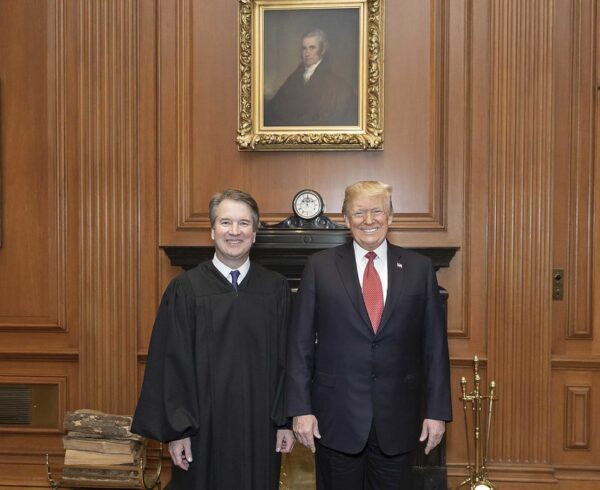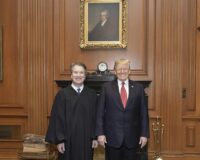This post will be the first entry in a series concerning Christian involvement in politics. I am writing this series, at least in part, because I question how several of our presidential candidates invoke their understanding of Christianity as a rational for soliciting votes. I hope the posts will provide some insight to readers who do not resonate with this faith as a primary factor in their lives, much less in politics. I also hope to plant some seeds of doubt within persons who believe professed belief and adherence to Christianity should be regarded as the primary reason for selecting a candidate.
Christians Must be Involved in Politics
Everything belongs to God as creator and absolute ruler of all that exists; therefore, no human endeavor lies outside the responsibility of the Christian Community of Believers to profess, proclaim, witness, rejoice in, and serve Jesus Christ, whom we acknowledge as Son of God. Accordingly, Christians must be involved in politics. The issue, therefore, is not should we be involved but the manner in which Christians should participate in the political arena.
The polarizing issue of Christian participation in politics arises from the tactical, not from the strategic, perspective. The Great Commission defines our strategy, with which most Christians agree: To make disciples of all people, to baptize them in the name of God—the Parent, Son, and Holy Spirit—and to teach them to obey everything that Jesus Christ commanded. Our tactics refer to how we implement the Great Commission. Christians naturally look to Holy Scripture for guidance on our tactics. Differing interpretations of Holy Scripture and its applicability lead to sometimes dramatically opposing ideas about our political tactics.
Decisions
Application of the Gospel to our politics, as with everything in life, requires us to decide if God’s revelation ended with Holy Scripture: Is Holy Scripture God’s last word to humans; are the rules final, can they be amended, can there be new rules; does more exist for Christians beyond Holy Scripture?
Such questions pertain to our politics because our system of governance, a democratic republic, falls far outside a literal interpretation of the Old and New Testaments. Holy Scripture does not explicitly mention, much less advocate, democracy as a political philosophy, even in the most liberal of our modern translations. A political system based upon the will of the people expressed as majority rule often lacks theological compliance with a government founded upon God’s will or the majority of One. A democratic republic could conform theologically to Holy Scripture, provided the great majority of citizens act in compliance with God’s supreme will. The point remains: Majority rule does not dictate morality and compliance with Gospel precepts; rather, these precepts should dictate morality and actions of the majority. That is, our Christian faith should inform our politics, not vice-versa.
Continuing Revelation
I believe God’s revelation to the Community of Believers through the Holy Spirit continues even now. This continuing revelation means that the Community of Believers exists more completely and more fully than Holy Scripture. Holy Scripture does not so much define the Community of Believers as the Community of Believers defines and interprets Holy Scripture: The Community, under the guidance of the Holy Spirit, primarily establishes our politics, not Holy Scripture alone.
How can the Community of Believers be more complete or more full than Holy Scripture? Our theological history provides the answer: Neither the Gospels nor any other part of the New Testament had been written at the time of the first Christians and could not have been the sole source of knowledge about Jesus Christ. Thus, the Community of Believers came to know Christ, lived according to his Gospel, and embarked upon the Great Commission without the benefit of the New Testament. We should keep in mind that Pentecost occurred well before any books of the New Testament were written. Christianity began as a way of life taught and modeled by Christ rather than as a system of beliefs, i.e., a theology based upon Holy Scripture.
Following Pentecost, the early Christians spread the Gospel message across much of the known world without the final written New Testament. Christianity was already well on the way to becoming the dominant religion of the Roman Empire when the Emperor Constantine died in 337 AD. St. Athanasius, bishop of Alexandra, did not publish his list of books that we accept as the authoritative components of the New Testament until 30 years later in 367 AD. What was true for the early Christians remains true for us today: The written text of Holy Scripture cannot be more important than the Community of Believers living faithfully in imitation of Christ through the continuing revelation and power of the Holy Spirit.
I agree that our political beliefs and actions, as with all aspects of our lives, must be based upon God’s principles and laws contained in Holy Scripture. I profoundly disagree with the idea that Holy Scripture by itself defines the total or complete message God has for us. Holy Scripture cannot be substituted for, or kept separate from, the Community of Believers. I do not deny or downplay the importance of Holy Scripture, which God certainly uses to call us to faithfulness. This call, however, always comes from within the Community of Believers as a reminder of how we must profess, witness, and serve the risen Christ. The example of the Community reflecting the Christ seen in Holy Communion presents the critical issue, not Holy Scripture alone.
The Controlling Authority
For many Christians, involvement in politics predominantly means electing representatives who will work to pass legislation based upon Scriptural laws. We need to be extremely cautious in this respect. Christian morality and fulfillment of the Great Commission cannot come about through legislation, no matter how noble the intent or severe the punishment in this world for noncompliance. The Community of Believers primarily works to change hearts and minds, a necessary prerequisite to bringing people into a new way of life. Actions of the Community in the political arena require us to reflect upon Jesus’ message to the Pharisees: Forced or rigid compliance with the law does not lead to salvation, the end product of the Great Commission. Salvation, therefore, comes through the Community of Believers living out the Gospel of Jesus Christ in witness to the world.
The Community of Believers and not individual politicians, regardless of how fervently they claim to be born again, speaks with controlling authority on political issues. The Community of Believers must insist that our politicians move beyond the Pharisaic approach to politics. The Community of Believers cannot allow political philosophies—liberal or conservative, Democratic or Republican—to define our interpretation and application of Holy Scripture: To reiterate, the Community of Believers must determine our politics.
Inspired Consensus
The history of how the Community of Believers came to accept St. Athanasius’ list as the authoritative New Testament illustrates another important consideration in understanding the relationship between Holy Scripture and politics. A large number of surviving documents reveals that many books were written and proposed as the authentic words of God during the first centuries after Christ’s resurrection. Various competing theologies, some ultimately defined as heresies, were put forth and argued. Reasoned debate, prayerful deliberation, and the revelation of the Holy Spirit ultimately led the Community of Believers to a consensus about the books forming our Holy Scripture.
With this background in mind, the key to how the Community of Believers should act in politics necessarily involves a first step: Building an enlightened consensus within the Community. An enlightened consensus means one reached through prayerful solicitation of guidance from the Holy Spirit. Our efforts in the political arena will not have any lasting beneficial effects absent such agreement on important issues. We must take care that our consensus building efforts focus primarily on issues of true significance to the Community. Differing opinions within the Community must be dealt with lovingly, deliberately, prayerfully, and with Christian compassion and respect until we reach a consensus. Harsh judgmental pronouncements by Christians against other Christians cannot be tolerated. Importantly, we must live what we preach.
My next post will deal with why we must reject Dominionism—the political and religious philosophy that seeks to make the United States government a Christian theocracy by law.










